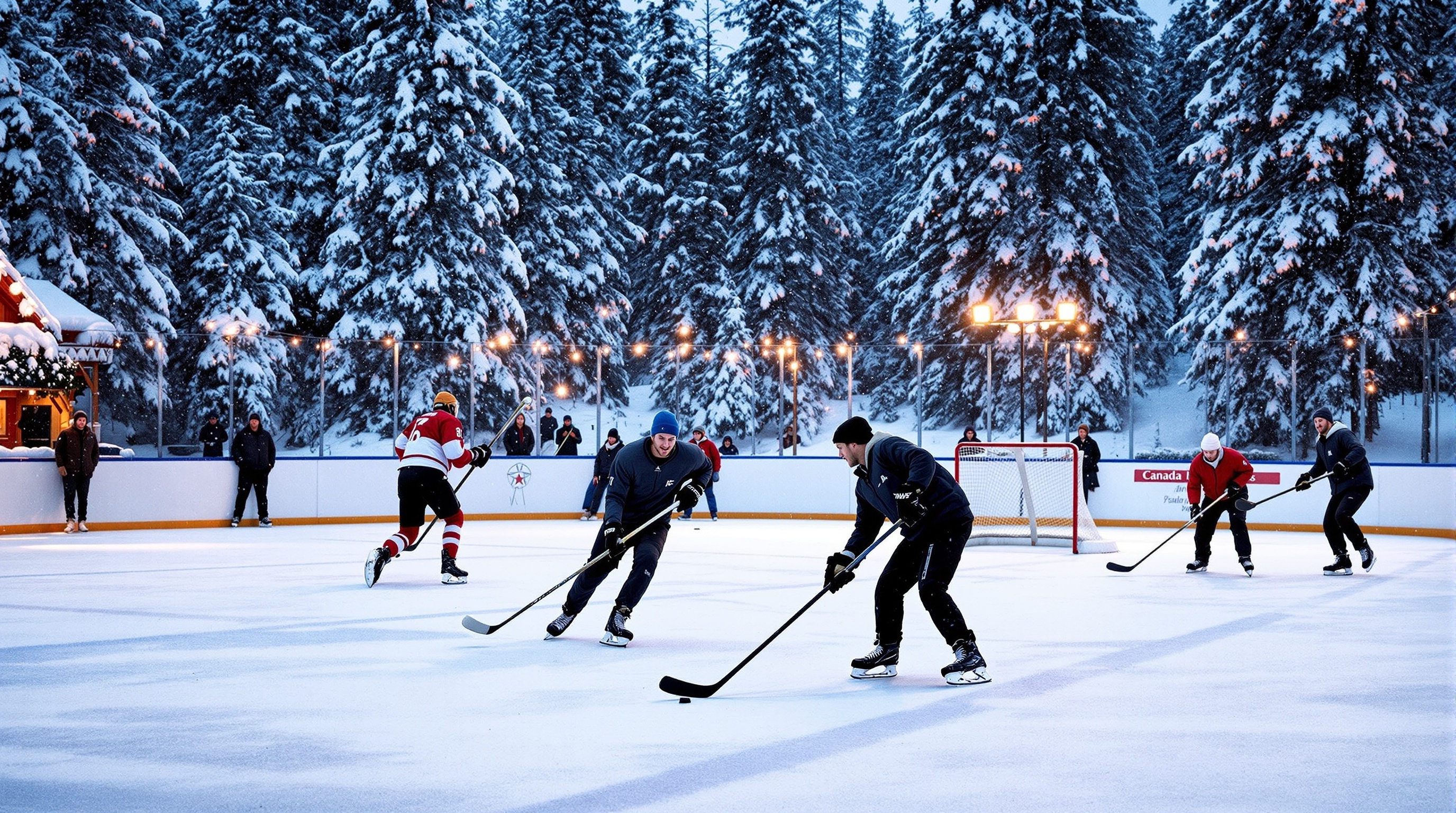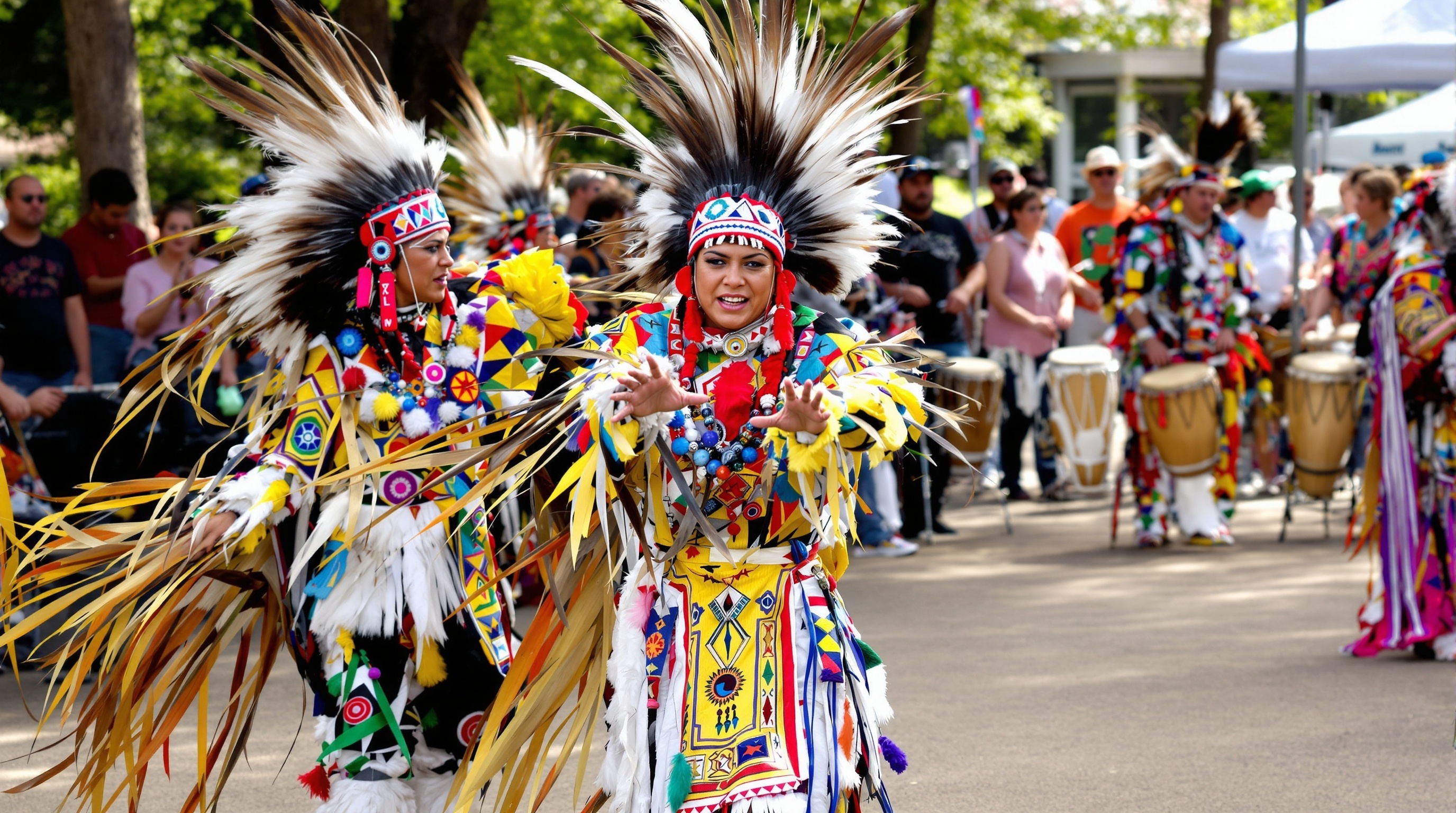Family Traditions That Define Canadian Life: Creating Lasting Memories Across Generations
How Canadian families create lasting memories through traditions both old and new, from Sunday dinners to annual camping trips that span generations. These rituals form the backbone of Canadian family life and cultural identity.

In a country as vast and diverse as Canada, family traditions serve as anchors—connecting generations, preserving cultural heritage, and creating shared memories that define who we are. From coast to coast, Canadian families have developed unique rituals that blend inherited customs with new innovations, creating a rich tapestry of domestic culture.
The Sunday Dinner Institution
Perhaps no tradition is more universally Canadian than the Sunday family dinner. Across the country, families gather weekly around kitchen tables and dining rooms, maintaining a ritual that has survived decades of social change and technological disruption.
"Sunday dinner isn't just about food—it's about continuity," explains Maria Rossi, a Toronto grandmother who has hosted the same meal for her extended family for over thirty years. "My children are now in their forties, with kids of their own, but every Sunday at 2 PM, we're all here. Phones go away, and we actually talk to each other."
The menus vary by region and heritage: roast beef and Yorkshire pudding in Alberta, tourtière in Quebec, fresh seafood in the Maritimes. But the underlying structure remains constant—a multi-generational gathering centered around food, conversation, and connection.
"My grandmother started our Sunday dinners in 1952 when she immigrated from Italy. Now my granddaughter helps me make the same pasta sauce recipe. Four generations of women, same kitchen, same recipe, but completely different lives and dreams. That's the beauty of family tradition." — Angela Benedetti, Hamilton matriarch
The Great Canadian Camping Tradition
If Sunday dinners represent Canadian family life indoors, camping embodies the outdoor spirit that defines much of Canadian family culture. From Algonquin Park in Ontario to Jasper in Alberta, Canadian families have made annual camping trips foundational experiences for their children.
"We started camping when our kids were toddlers," recalls John MacKenzie from Saskatoon. "Twenty-five years later, our grown children still block off the third week of July for the family camping trip. Their kids now look forward to it all year long—learning to start fires, identifying bird calls, telling ghost stories under the stars."
These camping traditions often span decades and evolve with family changes. What begins as car camping with young children might eventually become backcountry canoe trips with teenagers, then return to more accessible campgrounds when grandchildren arrive.
Holiday Traditions: Blending Old and New
Canadian families excel at creating hybrid holiday traditions that honor multiple cultural backgrounds while establishing new Canadian customs. Christmas celebrations might feature Ukrainian pierogi alongside Scottish shortbread and Chinese dumplings—reflecting Canada's multicultural reality.
The Patel family in Vancouver exemplifies this blending approach. "We celebrate Diwali with traditional Indian sweets and ceremonies, but we also have a Canadian Thanksgiving with turkey and all the fixings," explains Dr. Priya Patel. "Our kids understand they're both Indian and Canadian, and our celebrations reflect both parts of their identity."
Many Canadian families have invented entirely new traditions unique to their circumstances. The annual "Boxing Day skate" in Winnipeg, where extended families meet at outdoor rinks. The "New Year's Day polar bear plunge" that several Maritime families have maintained for decades. These customs emerge organically from Canadian geography, climate, and family creativity.
Seasonal Celebrations: Working with Canadian Climate
Canadian families have learned to celebrate the seasons rather than endure them, creating traditions around each distinct time of year. Maple syrup season in Ontario and Quebec brings families to sugar bushes for pancake breakfasts and horse-drawn wagon rides. Apple picking in British Columbia's Okanagan Valley marks autumn for many families.
Winter traditions might include annual skiing trips, ice fishing expeditions, or skating parties on backyard rinks. Spring brings fishing season openings and cottage preparations. Summer means berry picking, Canada Day celebrations, and countless hours at lakes and beaches.
"We don't fight the weather—we celebrate it," says Catherine Dubois from Quebec City. "Our kids learned to love every season because we found ways to make each one special. Winter means snow angels and hot chocolate. Spring means maple taffy on snow. Summer means berry pies and lake swimming. Fall means pumpkin carving and hayrides."
Coming-of-Age Traditions
Canadian families often create informal coming-of-age traditions that mark important transitions in children's lives. First hunting or fishing trips with grandparents. Learning to drive on rural back roads. Solo canoe trips for teenagers ready for independence.
In Indigenous Canadian families, these transitions might involve traditional ceremonies and teachings. In immigrant families, they might blend Canadian activities with cultural traditions from ancestral countries. The common thread is intentional recognition of growth and maturation.
"When each of our kids turned sixteen, they got to plan a family adventure," explains Tom Anderson from Thunder Bay. "Our daughter chose a backcountry canoe trip. Our son wanted to visit every NHL arena in Canada. Crazy? Maybe. But those trips created memories we'll treasure forever."
The Role of Food in Canadian Family Traditions
Food serves as both medium and message in Canadian family traditions. Grandmothers pass down recipes that connect children to cultural heritage. Families develop signature dishes for special occasions. Annual activities center around food preparation—making Christmas cookies, canning summer vegetables, smoking salmon.
The Nguyen family in Calgary has maintained a tradition of making traditional Vietnamese spring rolls every New Year, with each family member responsible for a different component. "It takes the entire family working together for hours," explains mother Linda Nguyen. "But the process is as important as the food. Our kids learn patience, technique, and family history all at the same time."
Adapting Traditions for Modern Life
Contemporary Canadian families face unique challenges in maintaining traditions. Geographic dispersal, demanding work schedules, and changing family structures require creative adaptation of traditional practices.
Technology has become both challenge and solution. Video calls allow grandparents to participate in birthday celebrations from across the country. Shared digital photo albums maintain connection between visits. Online recipes preserve family cooking traditions even when family members live far apart.
"We couldn't maintain our Sunday dinners when the kids moved to different cities," admits Robert Chen from Edmonton. "So now we have Sunday video calls where everyone cooks the same meal and we eat 'together' online. It's not the same as being in person, but it maintains the connection."
Creating New Traditions
The most successful Canadian family traditions aren't just inherited—they're consciously created and adapted to reflect current family values and circumstances. Young families are inventing new traditions that reflect contemporary Canadian life while honoring the spirit of connection that defines traditional family practices.
Some examples of newer Canadian family traditions: Annual volunteer days at local charities. Family reading challenges. Backyard camping when travel isn't possible. Monthly cultural exploration nights featuring different countries' cuisines and customs.
"We realized our kids were growing up without really understanding their multicultural heritage," explains Sarah Kim from Ottawa. "So we started 'Heritage Fridays' where we explore a different cultural background each month—food, music, history, customs. The kids love it, and honestly, we're learning things we never knew about our own backgrounds."
The Deeper Purpose
Child development experts note that family traditions serve crucial psychological and social functions. They provide stability in changing times, create shared identity and belonging, and offer opportunities for intentional family connection away from daily pressures.
"Family traditions create predictable positive experiences," explains Dr. Janet Morrison, a family psychologist at the University of Toronto. "Children know that certain special things will happen, regardless of other stresses in their lives. That consistency builds security and strengthens family bonds."
Research consistently shows that children from families with strong traditions demonstrate higher self-esteem, better academic performance, and stronger family relationships that persist into adulthood.
Preserving What Matters
As Canadian society continues evolving, family traditions face pressure from busy schedules, geographic mobility, and changing social norms. But families who successfully maintain meaningful traditions share common approaches: flexibility in format while maintaining core purpose, inclusion of all family members in tradition planning, and regular evaluation of which traditions still serve family needs.
The most enduring Canadian family traditions aren't about perfect execution or elaborate planning—they're about consistent investment in family relationships and shared experiences. Whether it's Sunday dinners, camping trips, or entirely new inventions, these traditions create the connective tissue that holds families together across time and distance.
In a rapidly changing world, Canadian families continue to find ways to create stability, connection, and joy through traditions both old and new. These practices don't just create memories—they create identity, belonging, and the foundation for future generations to build their own meaningful family cultures.


